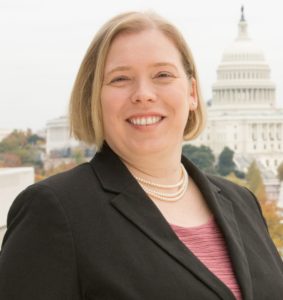“The pandemic acknowledges no religious exemption,” a group of faith leaders wrote to state legislators across the nation April 12.
The interfaith group — which includes the Alliance of Baptists, American Baptist Home Mission Societies, Baptist Joint Committee for Religious Liberty, Baptist Women In Ministry, Cooperative Baptist Fellowship and Fellowship Southwest — urged state legislators to reject bills that exempt houses of worship and religious gatherings from public health directives like those issued during the coronavirus pandemic.
A panoply of such religious exemption bills has been offered in at least 36 state legislatures this session, some seeking to declare that all houses of worship are “essential” businesses like grocery stores and gas stations.
“Too often, these bills are overly broad and could result in policies that threaten public health and safety.”
“We appreciate the desire to protect our right to worship and gather for religious activities,” the statement said. “Too often, however, these bills are overly broad and could result in policies that threaten public health and safety.”
The sentiment expressed by the coalition of Baptists, Jews, Methodists, Disciples of Christ, Presbyterians and others runs counter to the views of most conservative evangelical Christian groups, which have been at the forefront of opposing public health restrictions.
On the same day this interfaith statement was released, leaders of the Southern Baptist Convention, for example, lauded an April 9 ruling by the U.S. Supreme Court that appears to give churches more leeway to bypass pandemic restrictions than similar secular organizations. The California case was about a church that wanted to have in-home Bible studies in violation of state public health policies banning all in-home gatherings — religious or secular — where members of more than three households would mingle.
Rolland Slade, lead pastor of Meridian Baptist Church in El Cajon, Calif., and chairman of the SBC Executive Committee, told Baptist Press: “In-home activities like Bible study, prayer meetings and worship gatherings have been essential to our faith practice going back to Acts 2:42. The restrictions imposed by the state of California, while drawing us closer together, also strengthened our resolve to continue to meet. We have been blessed to see a bit of the tension that the early church may have felt.”
While the interfaith group’s letter did not address the Supreme Court ruling, it did speak directly to state legislatures considering codifying special privileges for religious groups.
“Religious freedom does not demand tying the hands of public officials who are trying to safeguard public health.”
“Religious freedom does not demand tying the hands of public officials who are trying to safeguard public health as they respond to unforeseen events like pandemics, natural disasters and other emergencies,” the group said. “Indeed, all of our denominations have found creative ways to provide opportunities for worship during the pandemic, recognizing the spiritual sustenance and sense of community that religious practices provide.”
The dichotomy of approaches from religious groups on the same day illustrated the dueling perspectives that have emanated from U.S. faith groups during the pandemic. Conservative evangelical churches and leaders have tended to decry any government effort to restrict religious gatherings as a public health measure. Mainline and progressive Protestant churches and leaders have tended to emphasize community health over their own desire to gather in-person.
“To save lives, we must continue to listen to medical and public health professionals and acknowledge that social distancing measures — both in secular and religious settings — have proven critical in containing viral outbreaks,” the interfaith statement continued. “Regulating gatherings, even at houses of worship, may continue to be one of the best ways to protect public health.”
These religious leaders agreed that they would love to gather with their congregations in-person again, “but now is the time for religious communities to lead by example, taking proactive steps to keep ourselves and the broader community safe.”
“By giving religious gatherings a pre-emptive exemption from future emergency orders, we fear that these bills will unintentionally paint religious communities as part of the problem, not the solution, and thereby undercut our ability to partner with community leaders to defeat the crisis,” the interfaith group said.

Jennifer Hawks
Religious freedom is more nuanced than the headline-blaring and court-ruling situations that have dominated the discussion, said Jennifer Hawks, associate general counsel for BJC, one of the organizers of the letter.
“The COVID-19 pandemic has demonstrated that courts have the tools to evaluate challenges of government overreach in emergency public health-related orders,” she said. “Protecting religious freedom requires a careful assessment of the facts in each situation. That judicial approach, rather than overbroad legislation, is the better way to address such public health crises and ensure religious gatherings are not treated less favorably than other similarly situated activities.
Related articles:
Another Friday night, another Supreme Court rapid ruling on churches and COVID
Supreme Court again overturns COVID restrictions on houses of worship
What does the Supreme Court’s midnight COVID ruling really mean for religious liberty?
As COVID cases soar, court’s retreat opens doors of churches


